The healthcare industry is experiencing unprecedented growth, driven by advances in medical technology, IT innovation, and an increasing emphasis on outpatient care. Healthcare is projected to be among the fastest growing sectors over the next several years, with hospitals and providers expanding facilities and adopting digital solutions to meet increased need for services. As a result, the demand continues to rise for not only patient-facing personnel, but also for a diverse range of support functions within healthcare such as technology integration, revenue management and billing, and digital marketing.
Indeed, healthcare organizations today require a comprehensive workforce to facilitate a range of tasks. These include – though are not limited to – implementing Enterprise Resource Planning (ERP) software to streamline crucial operations, ensuring compliance with industry regulations, and designing more satisfying digital experiences for patients.
This report highlights key employment trends in healthcare technology, administration, and digital sectors, exploring how these non-clinical roles are shaping the industry’s future.
One of the most significant shifts in modern healthcare is the integration of ERP, EHR, HCM, and CRM systems. These technologies streamline operations, improve decision-making, and enhance patient experiences by automating approval policies, optimizing staffing, and ensuring real-time access to critical data. Despite challenges such as cybersecurity risks and implementation complexities, the benefits—ranging from cost reduction to improved patient outcomes—far outweigh the obstacles.
To support this transformation, The Planet Group provides specialized healthcare IT professionals skilled in implementing, maintaining, and optimizing platforms like Workday, Oracle Health, Meditech, Epic, Cerner, and more. From ERP and EHR system analysts to integration specialists and project managers, these professionals help healthcare organizations drive digital transformation, maintain compliance, and enhance operational efficiency.
Below is data on the percentage of job orders taken month-over-month over the past year related to technology positions within the healthcare sector.
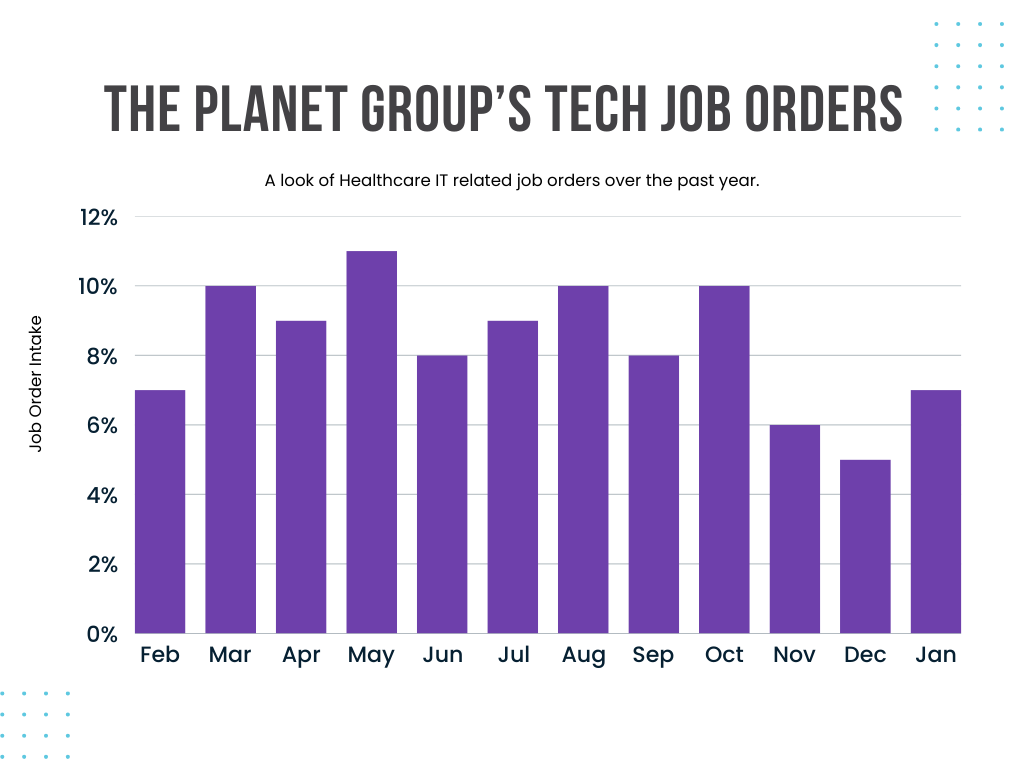
A recent survey among ERP healthcare professionals highlights the most valued innovations when it comes to their top priority when working with Oracle Health:
The demand for skilled professionals who can implement and manage healthcare IT systems is on the rise. The Planet Group is seeing similar demand for key roles, including:
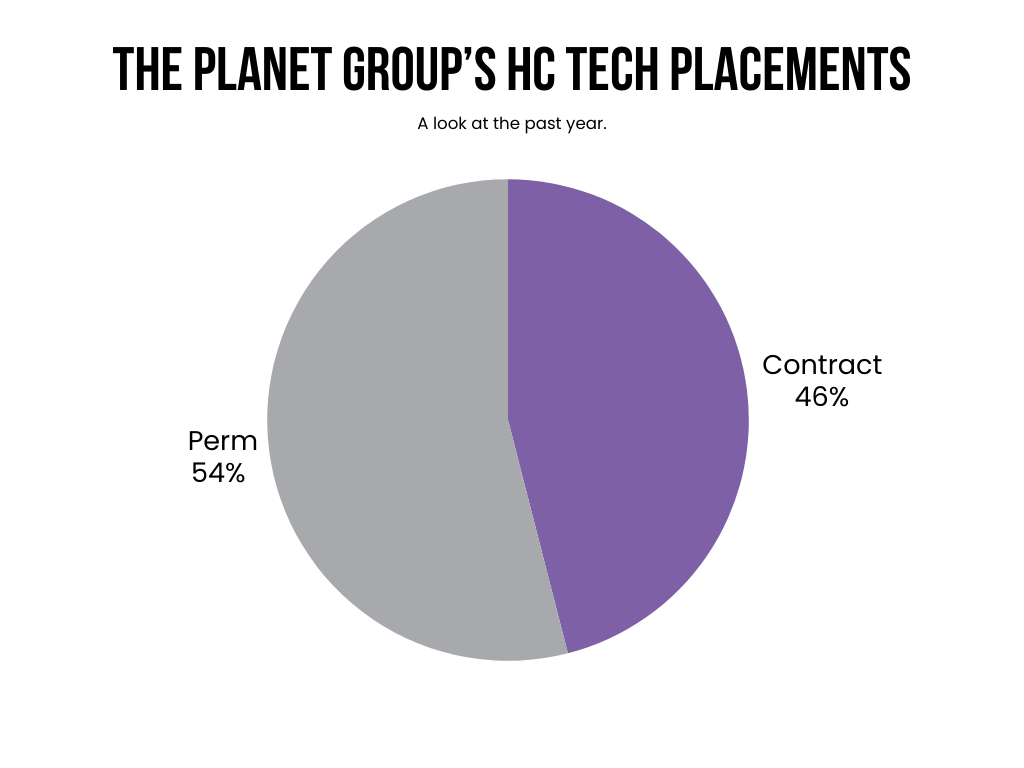
With the increasing demand for healthcare services, support staff play a crucial role in maintaining efficiency. Medical office administrators and health services managers handle patient records, insurance, billing, and communications—critical functions for hospital and provider operations. The employment of health services managers is projected to grow by 29% by 2033.
Revenue cycle management is another rapidly expanding area as well, covering financial operations such as billing and collections. The global RCM market is expected to reach $272.78 billion by 2030, growing at a CAGR of 11.55%. Specific vital functions of administrative and revenue management in healthcare include:
Below is data on the percentage of job orders taken month-over-month over the past year related to support and business operations within the healthcare sector.
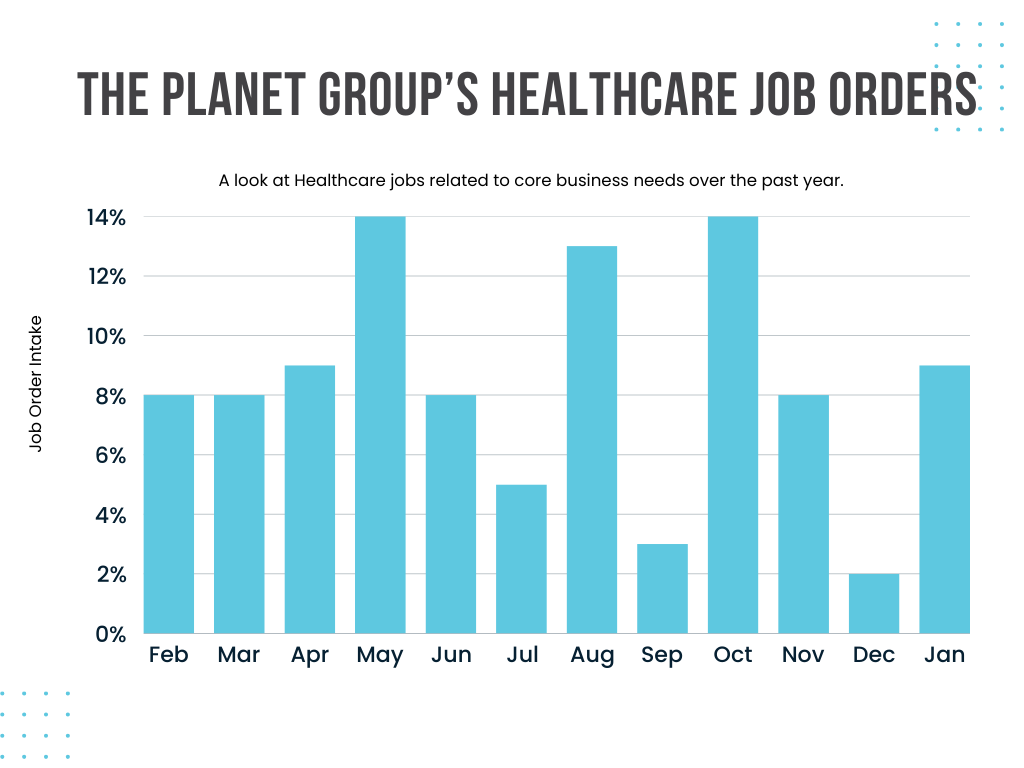
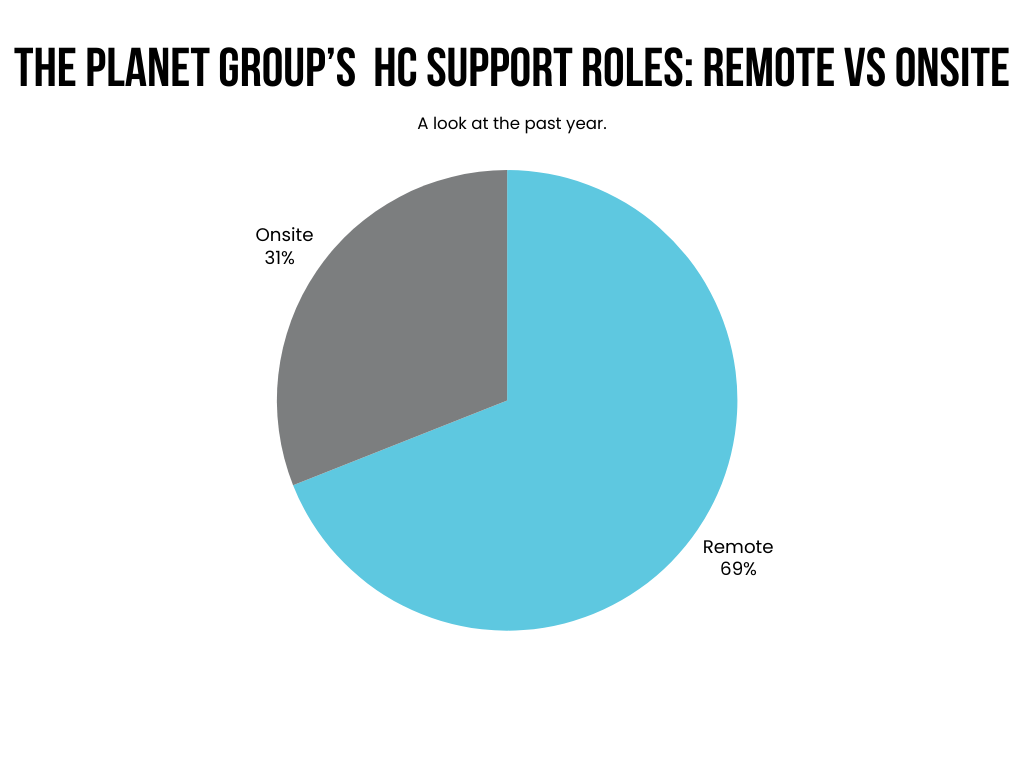
As healthcare providers seek to enhance patient engagement and distinguish themselves in a competitive market, demand for marketing and digital professionals is increasing. The global healthcare marketing and communications sector, valued at $49.08 billion in 2023, is projected to grow to $80.80 billion by 2030 at a CAGR of 7.38%.
Below is data on the percentage of job orders taken month-over-month over the past year related to the creative, digital, and marketing within the healthcare sector.
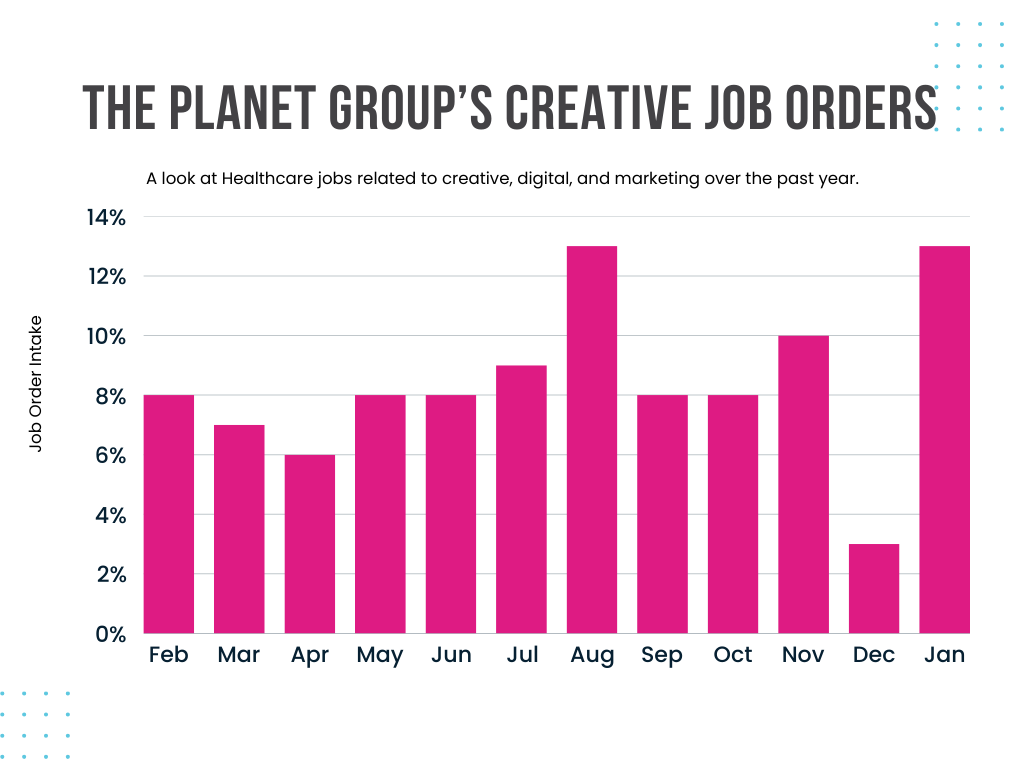
These diverse functions and digital skillsets are closely integrated with healthcare IT and technology more broadly. As demand for tech professionals increases, so too will the need for talented design, marketing and creative talent to help providers streamline operations and improve user experience or both their employees and their patients alike.
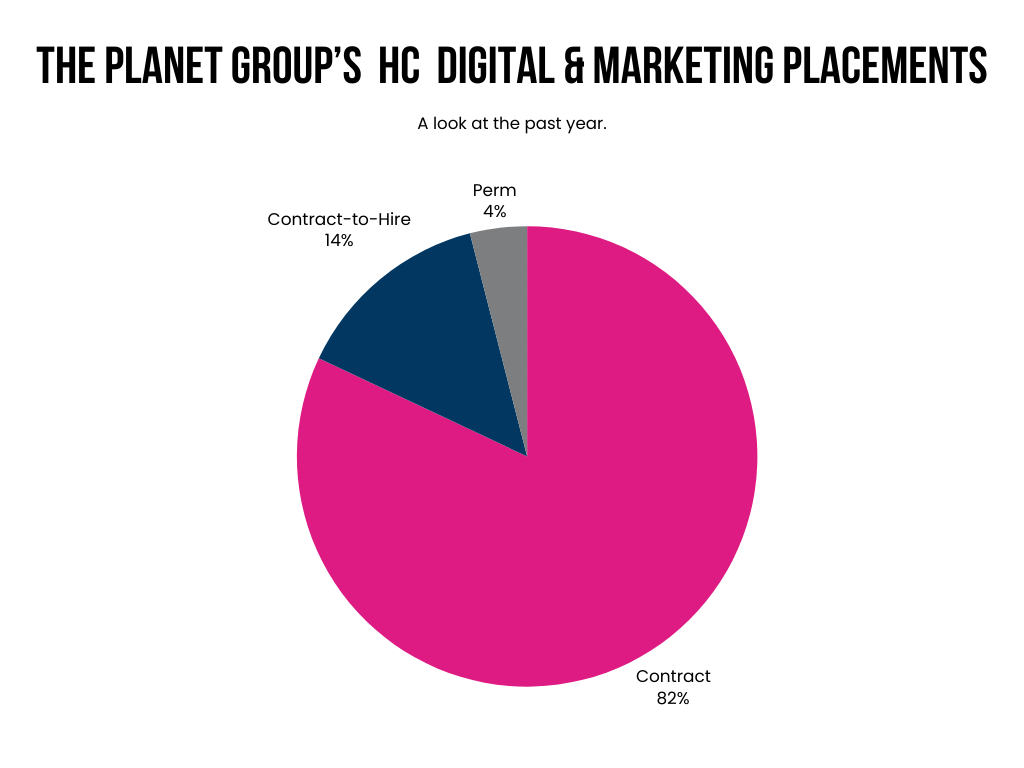
Despite the promising growth, the healthcare industry faces significant workforce challenges. For one, there are widespread shortages of patient-facing roles, a dynamic that can have ripple effects on healthcare delivery and operations more broadly.
Another challenge is navigating healthcare’s complex regulatory framework, which impacts staffing and operational decisions at every level. Healthcare organizations need skilled professionals who can manage enterprise systems, ensure compliance, and optimize workforce strategies.
The healthcare industry’s rapid transformation underscores the critical role of technology, workforce adaptation, and marketing in ensuring sustained growth. The increasing integration of ERP, EHR, and CRM solutions is streamlining operations, while emerging roles in IT, administration, and creative services are shaping the industry’s future.
Employers that invest in skilled talent and digital transformation will be well-positioned to enhance patient care, optimize costs, and navigate regulatory challenges. As healthcare continues to evolve, strategic hiring and workforce planning will be key to maintaining efficiency, innovation, and quality service delivery.
Photo Credit: Canva